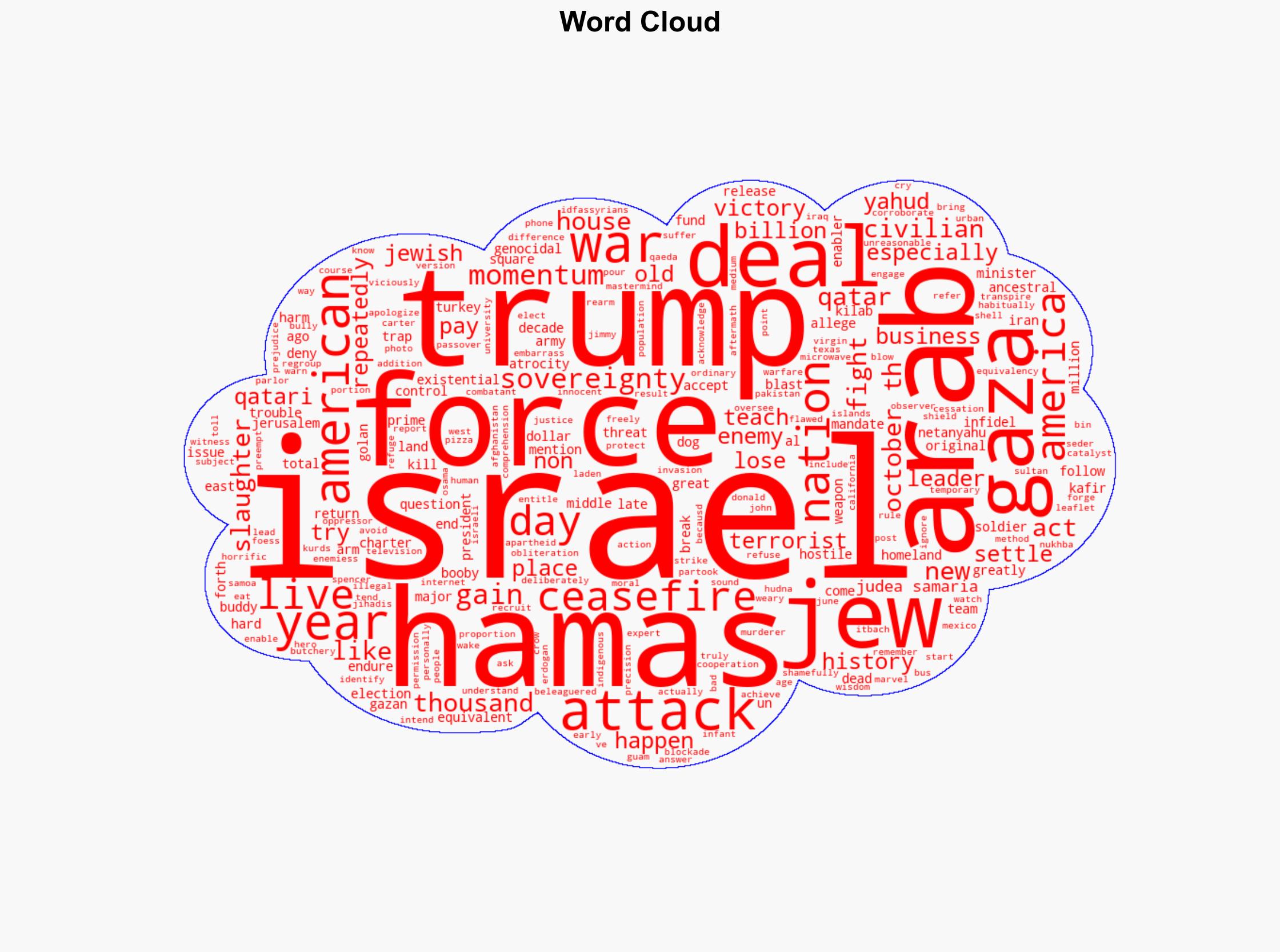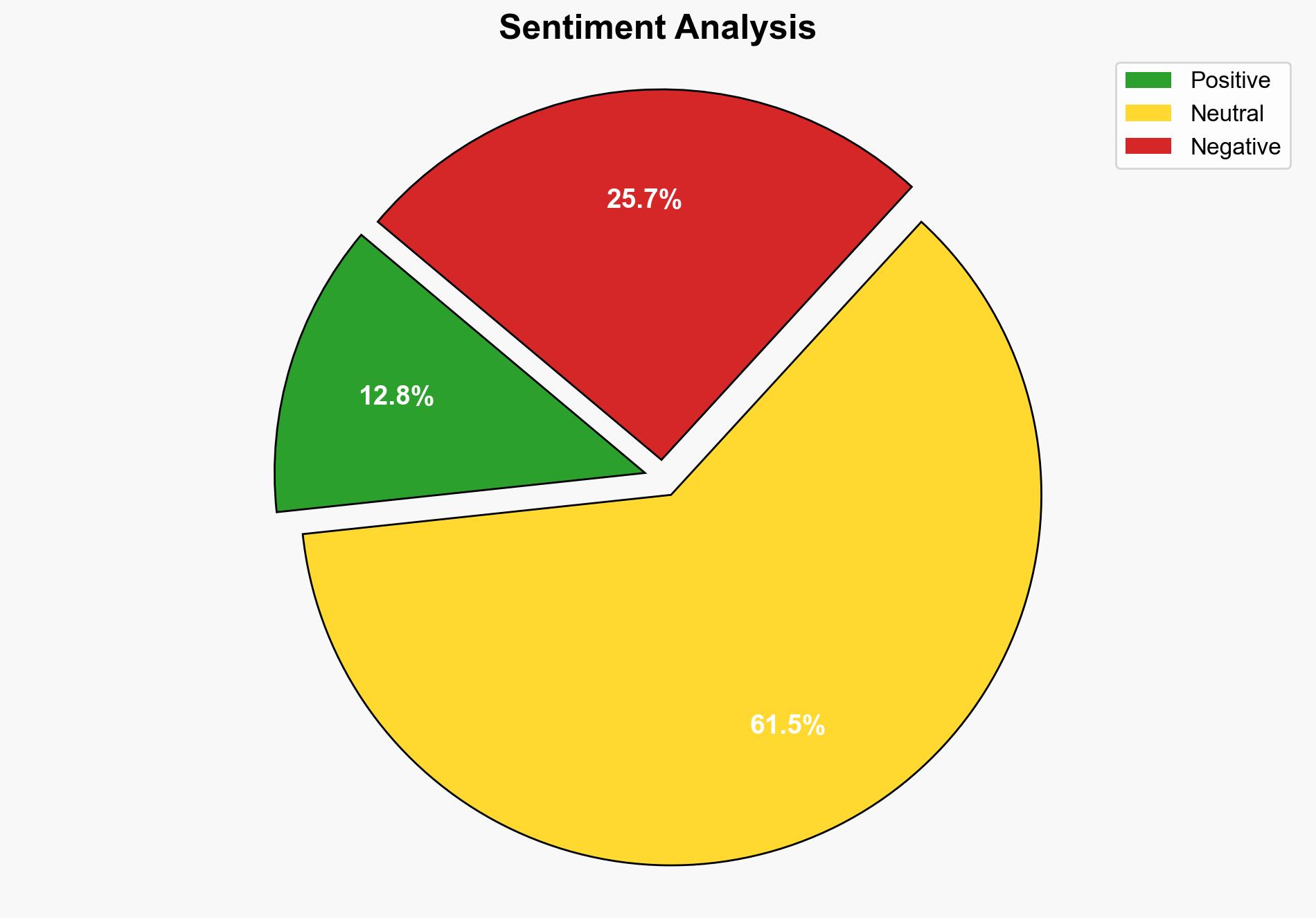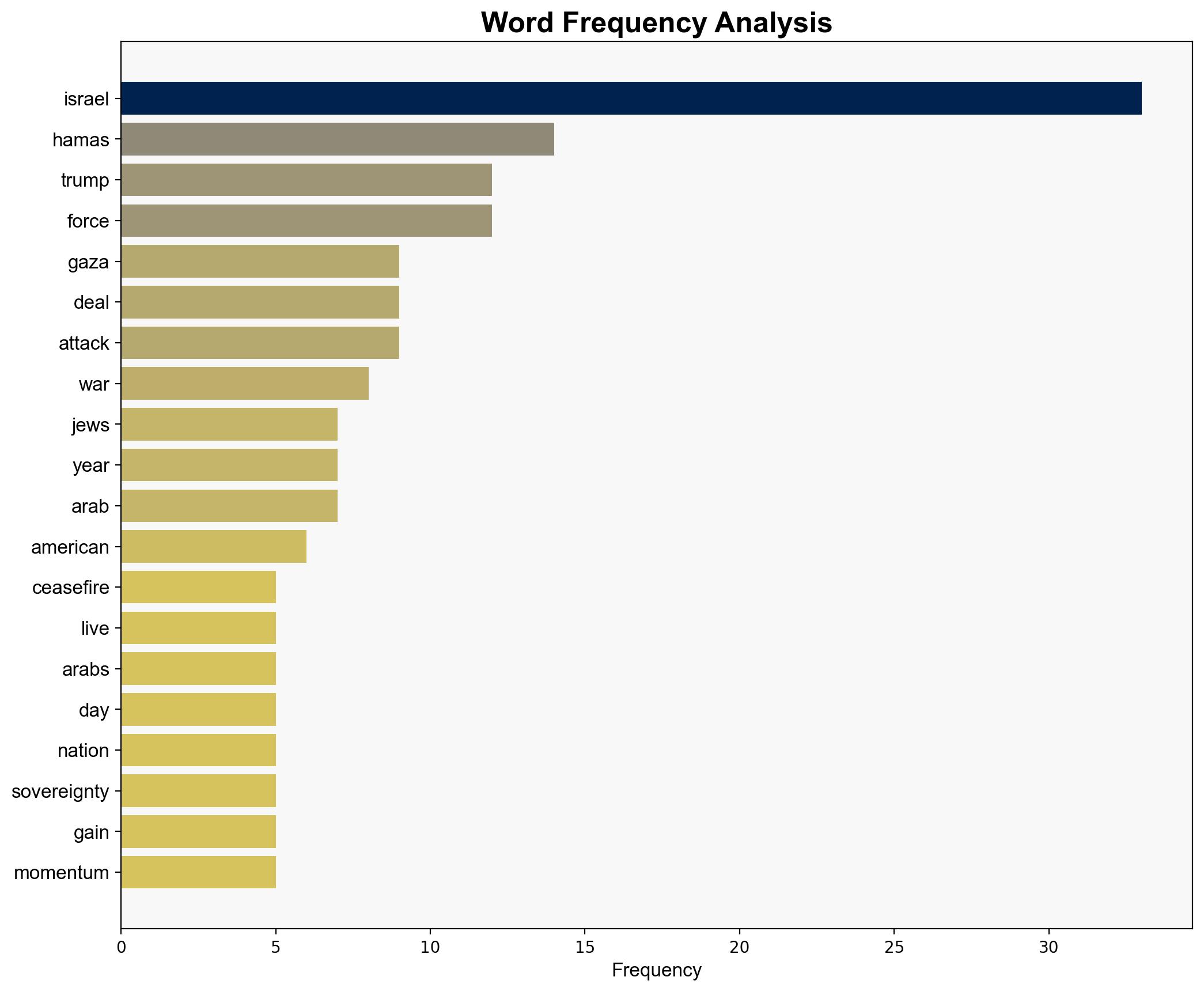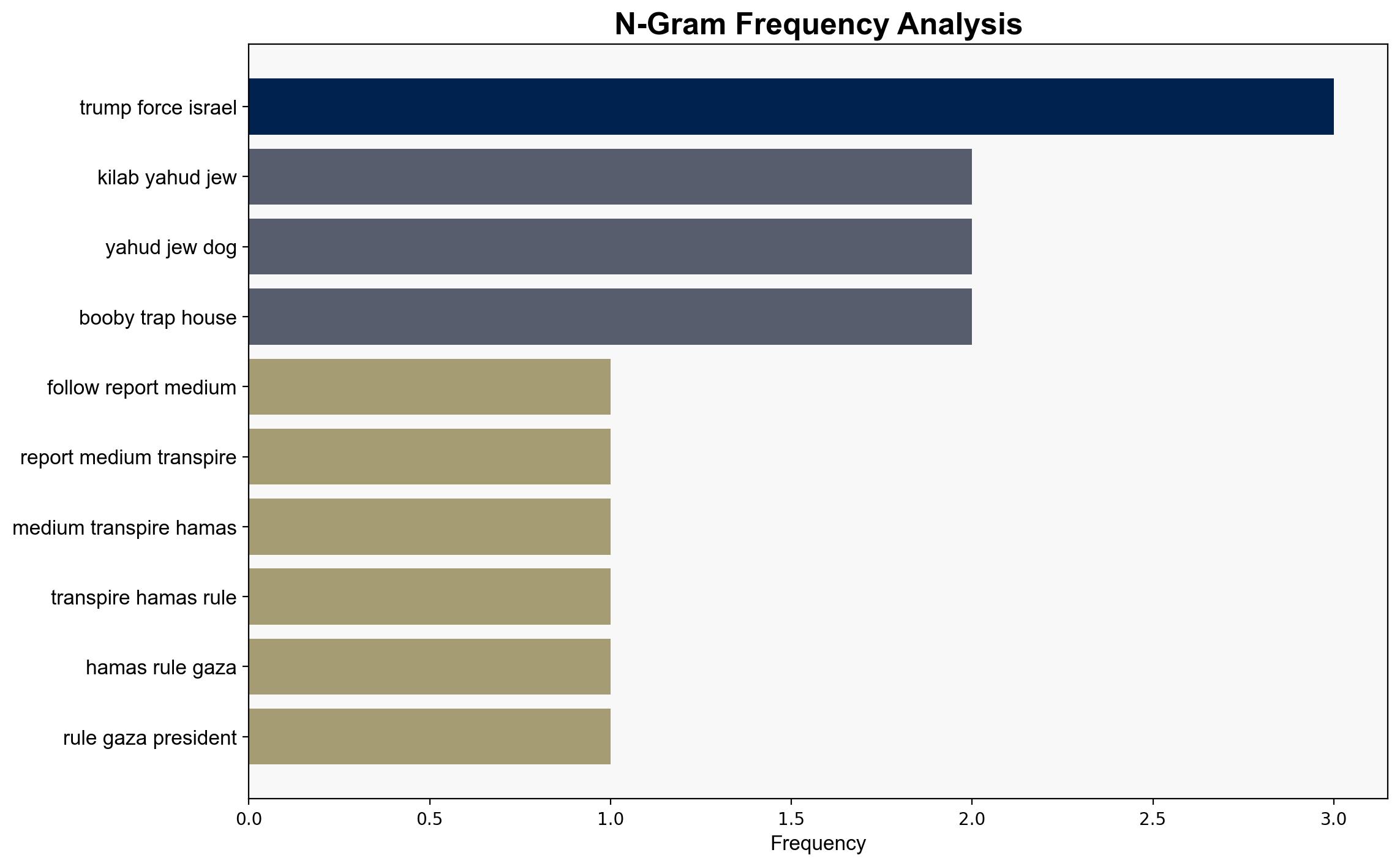Trump forced Israel to relinquish its military advantage in Gaza – Israelnationalnews.com
Published on: 2025-10-28
Intelligence Report: Trump forced Israel to relinquish its military advantage in Gaza – Israelnationalnews.com
1. BLUF (Bottom Line Up Front)
The analysis suggests two primary hypotheses regarding the situation described. The first hypothesis posits that external pressure from the U.S., specifically from Donald Trump, led Israel to accept a ceasefire that compromised its military advantage. The second hypothesis considers that Israel’s decision was influenced by internal strategic calculations rather than external pressure. The first hypothesis is better supported by the source text, which emphasizes Trump’s influence. Confidence in this assessment is moderate due to the potential biases and lack of corroborative evidence. Recommended action includes monitoring U.S.-Israel relations and regional stability in Gaza.
2. Competing Hypotheses
1. **Hypothesis 1**: The U.S., under Donald Trump, exerted significant pressure on Israel, forcing it to accept a ceasefire that diminished its military advantage in Gaza.
2. **Hypothesis 2**: Israel’s acceptance of the ceasefire was primarily driven by its own strategic considerations, such as minimizing civilian casualties and international pressure, rather than direct U.S. influence.
Using the Analysis of Competing Hypotheses (ACH) 2.0, the source text heavily implies U.S. pressure, particularly through Trump’s actions, supporting Hypothesis 1. However, the lack of direct evidence and potential bias in the source necessitates caution.
3. Key Assumptions and Red Flags
– **Assumptions**: The analysis assumes that the source accurately represents Trump’s influence and that Israel’s strategic decisions are heavily influenced by external actors.
– **Red Flags**: The source may exhibit bias, presenting a narrative that aligns with specific political views. The lack of corroborating evidence from other sources raises questions about the reliability of the claims.
– **Blind Spots**: The report does not account for Israel’s internal decision-making processes or the potential influence of other international actors.
4. Implications and Strategic Risks
– **Geopolitical**: If U.S. influence is indeed significant, it could alter the balance of power in the region, affecting Israel’s security posture and its relations with neighboring states.
– **Psychological**: Perceptions of U.S. pressure could impact Israeli public opinion and its government’s domestic support.
– **Escalation Scenarios**: A weakened military stance could embolden Hamas or other regional actors, potentially leading to renewed hostilities.
5. Recommendations and Outlook
- Monitor U.S.-Israel diplomatic communications for signs of pressure or influence.
- Encourage intelligence-sharing with allies to verify claims and assess regional stability.
- Scenario Projections:
- **Best Case**: Strengthened U.S.-Israel relations lead to a stable ceasefire and improved regional security.
- **Worst Case**: Perceived U.S. pressure leads to internal unrest in Israel and escalates regional tensions.
- **Most Likely**: Continued diplomatic maneuvering with intermittent flare-ups in Gaza.
6. Key Individuals and Entities
– Donald Trump
– Benjamin Netanyahu
– Hamas leadership
– Qatari leadership
7. Thematic Tags
national security threats, geopolitical influence, U.S.-Israel relations, Middle East stability




